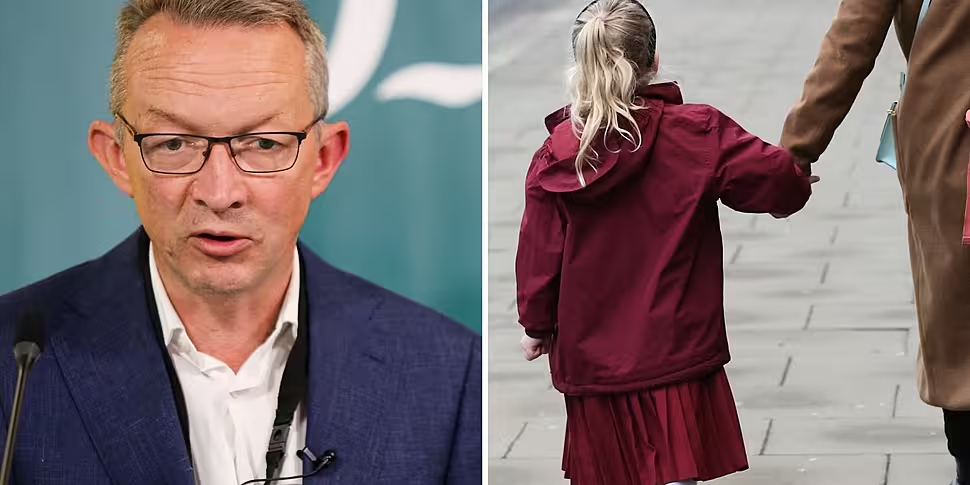The policy of keeping children home from school was doing more harm than good.
That's according to the chief clinical officer of the HSE, Dr Colm Henry.
He was speaking after plans were announced to stop contact tracing in primary schools and childcare facilities from next Monday.
It means the end of testing of asymptomatic close contacts in childcare facilities and primary education.
However, those who are 12 and under and identified as household close contacts in household settings will still need to restrict movements and get tested - regardless of their symptomatic status.
Dr Henry told The Hard Shoulder the school policy is no longer necessary.
"The knowledge now that huge numbers of children were being excluded needlessly, well children, from having their education disrupted - at a time which is completely different to when these measures were put in place before.
"We've learnt a lot about the behaviour of COVID in children - for an overwhelming amount of children, it's a mild illness.
"And we know transmission between children is not that common, and not a major driver of infection.
"And of course those to whom children may have represented a threat, unvaccinated people out in the community, look at the figures.
"The overwhelming uptake of vaccine of their mammies and daddies and their grandparents means it's a safer place when they go home.
"Needless ongoing absenteeism from school for 10 days, at the scale that we're seeing - of over 10,000 per week - the harm of that measure now exceeds any benefit on a population level.
"We've reached an inflection point now where the good that comes out of this measure is outweighed by the harm".
'Importance in children's development'
Dr Henry says the risk factor has changed.
"It's a different risk-scenario now, and we can say to ourselves that the potential benefits of these ongoing measures in children, for well children, are probably outweighed now by the harm.
"The harm... is a disruption to their education, and we know that's particularly harmful to young children.
"Not just from the point of education and socialising and their development - but from healthcare, for example.
"So many schools...is an opportunistic area for healthcare, for vaccinations, even for reports - Tusla, 20% of reports come from the school setting.
"So there's so much importance in schools in children's development".
Children 'rarely become seriously ill'
And he says the figures reflect the lower risks for children.
"We did a review of the first year, to the end of last term, and we saw that 90% of outbreaks in schools were less than 10 children - and 50% between two and four."
And he adds this is also seen in the the low number of ICU admissions.
"Children can catch the virus, but we know thankfully from our experiences they rarely become seriously ill.
"We've had over 1,700 patients admitted to ITU in the whole duration of this pandemic.
"A tiny fraction - less than 30 - were less than 14 years of age, and about a third of those were COVID positive.
"So about 1.4% of all admissions to pediatric ITUs were attributed to COVID, and less than 2% of all our ITU admissions were in children.
"It's very rare thankfully and fortunately no deaths."









